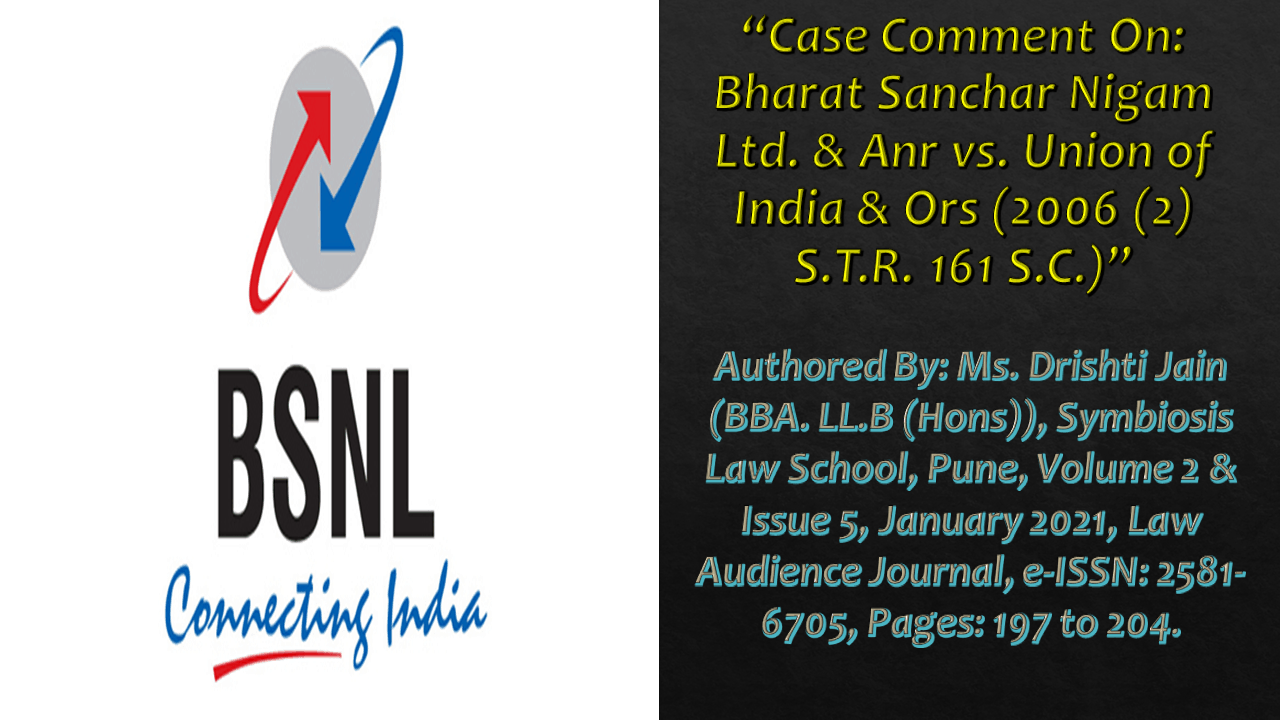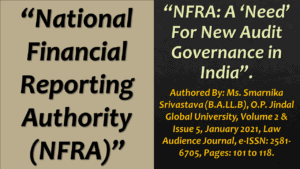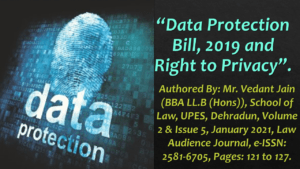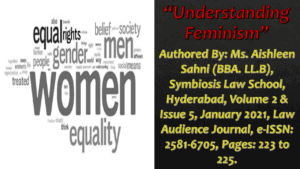Click here to download the full paper (PDF)
Authored By: Ms. Drishti Jain (BBA. LL.B (Hons)),
Symbiosis Law School, Pune,
Click here for Copyright Policy.
Click here for Disclaimer.
Case Name: Bharat Sanchar Nigam Ltd. & Anr vs. Union of India & Ors,
Jurisdiction: Supreme Court of India,
Case No. Writ Petition (Civil) 183 of 2003,
Equivalent Citations: 2006 (2) S.T.R. 161 SC, (2006) 64 CC 349; 145 STC 91; 152 Taxman 135; 194 Taxation 1; 2006 3 SCC 1; 2006 3 STT 245; 2006 4 CLJ 330; 2006 AIR 1383; 201 CTR 346; 282 ITR 273; 3 JT 114; 71 CLA 195.
Bench: Mrs. Ruma Pal, Dr. A.R. Lakshmanan & Dalveer Bhandari, JJ,
Date of Ruling: 02.03.2006.
I. BRIEF FACTS:
- BSNL, the service providers who were the writ petitioners in a case Escotel Mobile Communications Ltd. vs. Union of India[1], questioned the accuracy of the decision of the High Court and filed an appeal and a writ petition before the Apex Court under Article 32 of the Constitution of India.
- The problem of the nature of the transactions for which cell phone connections are used – whether it is a sale or a service or both – was brought before the High Courts for consideration. The High Courts of Allahabad,[2] Andhra Pradesh[3] and Punjab and Haryana[4] held that there was no selling of goods justifying the levying of the State sales tax on rents charged by the service provided to its subscribers. However, all three findings were overruled by the Supreme Court in the case of State of UP vs. Union of India[5].
- This matter was referred to a larger bench. The Kerala High Court had ruled that the transaction of sale of a SIM card included its activations and thus is a part of the State Sales Tax.
- It also held that the selling and activation process of SIM cards were “services” as well and would come under the definition of Taxable service as defined in Section 65(72)(b) of the Finance Act, 1994.
- This was a pure case of Res Judicata under Section 11 of the Code of Civil Procedure, 1908. This case examines whether the rendition of mobile telephony services would qualify as a deemed sale and discusses the scope of S.11.
II. ISSUES:
1. Whether the imposition of sales tax on any facilities of the telecommunication services is tenable in law.
1.1 Whether the States can tax the sale element.
2. Whether transactions concerning telecom products and services fall within the ambit of sale, service, or both.
2.1. What is considered “goods” in telecommunications?
3. Whether the “aspect theory” applies to the transaction enabling the States to levy sales tax on the same transaction for which the Union Government levies service tax.
4. Whether the scope of Article 366(29A) has been rightly analysed by the Supreme Court.
5. Whether tax cases fall under S.11 of the Code of Civil Procedure. (Res Judicata).
III. RULE:
- The contract between the telecom service provider and the subscriber is merely to receive, transmit, and deliver messages of the subscriber through a complex system of fibre optics, satellite, and cables.
- In terms of Article 366 of the Constitution of India, hiring, leasing, or licensing of any goods with the transfer of the right to use is deemed to be a sale, thereby subject to VAT/CST.
- The cases determined under the Sales Tax/VAT Law should not be applied automatically, but the applicability of the cases in question should be tested in the light of the facts and terms of the contract of the case in question.
- 11 (Res Judicata) – Code of Civil Procedure, 1908:
The principle of res Judicata is a rule of practice. Accordingly, no court shall pursue any claim or issue in respect of which the matter directly and substantially concerned has been directly and substantially dealt with in an earlier action between the same parties, or between the parties in which they, or either of them, dispute the same title, and the court competent to try the subsequent suit, or the suit in which that case was subsequently brought, and was heard and eventually determined by that court.
IV. APPLICATION:
Res Judicata debars a court from exercising its jurisdiction to determine the law if it has attained finality whereas the doctrine of issue estoppel is invoked against the party. If such a matter is resolved against him, he would be prohibited from raising the same question in the latter proceedings. It should be remembered that exclusively res Judicata does not extend to income-tax proceedings. The assessment year being a unit, which is determined in one year may not apply in the following year, but where a fundamental factor permeating the various assessment years has been established as a fact one way or the other, and parties have allowed that position to be sustained by now challenging the order, it would not be appropriate to allow the position to be changed in the subsequent year unless there was any material change justifying the revenue to take a different view of the matter. As rightly pointed out by the petitioners that in any event, the decision required reconsideration.
In the case, State of U.P. vs. Union of India and Anr[6], the court had interpreted the definitions of ‘business,’ ‘dealer,’ ‘goods’ and ‘sale’ under Sections 2(a), (c), (d) and (h) of the U.P. Act. The Trade Tax Act, to infer that the DoT was a ‘dealer’ under the U.P. Act. The Court also held that telephone communication and other devices providing access to the telephone exchange with or without instruments were ‘goods’ and that the transfer of the right to use the telephone instrument/apparatus and the whole system fell within the expanded scope of ‘sale’ following point (h) of Section 2 of the U.P. Act. A question of the validity of this argument would only occur if we dismissed the preliminary criticism of the State of U.P. Because we are exempted from the re-opening of the issues so inferred based on the principle of res Judicata.
It can be inferred that the judicial view was that even petitions filed under Article 32 were subject to the general principle of res Judicata. The court considered whether the principle would apply to tax cases and held the liability to pay tax from year to year and if any points of fact or law are considered in determining the liability for a given year in a separate liability. Overruling of a decision takes place in a subsequent time where the precedential value of the decision is called into question. The overruling would not operate to upset the binding nature of the decision on the parties to an earlier decision but for whom the principle of res judicata would continue to operate.
However, in tax cases in respect of a subsequent year involving the same subject-matter as in the previous year, the court may differ from the view expressed if the case is distinguishable or per incuriam. The decision of the State of U.P. vs. Union of India[7] concerned the year 1988. The present case of BSNL indeed relates to a subsequent period. It would be appropriate to add that, even if a direct decision of this Court on a point of law does not act as a res judicata in a dispute for a subsequent year, that decision would have a binding effect, under Article 141, not only on the parties to it but also on all courts in India. As a result, the question of the applicability of res judicata to such a decision would be a matter of purely academic importance.
The principal question to be decided in these matters is the nature of the transaction by which telecom communications are enjoyed. It can be inferred from this case that, if it is a sale, states are legislatively competent to levy sales tax on the transaction under entry 54, List II of the Seventh Schedule to the Constitution. If it is a service, the central government may, on its own, levy duty on services under entry 97 of List I (or entry 92c of List I after 2003). If the nature of the transaction falls within the categories of both sales and services, the key question would be whether the two legislative authorities could collect their separate taxes at the same time or whether only one of them could do so.
To determine whether a transaction involves the transfer of the right to use the goods, the following criteria must be followed: (i) There must be goods available for delivery; (ii) There must be a consensus ad idem as to the identity of the goods; (iii) the transferee should have the legal right to use the goods and, therefore, the transferee should have access to all the legal consequences of such use, including any permits or licenses required; (iv) For the period during which the transferee has such legal right, it has to be to the exclusion to the transferor this is the necessary concomitant of the plain language of the statute viz. a “transfer of the right” to use and not merely a license to use the goods; and (v) If the right to use the goods has been transferred during the period for which it is to be transferred, the owner may not transfer the same rights to others again.
While rejecting the contention of the State legislature that SIM cards were being transferred to activate the cellular services and such SIM cards being goods, the sales tax would be attracted, the Supreme Court held that the providing of cellular services would fall within the exclusive domain of Parliament, embarking on an analysis of Article 366(29A). All the provisions of this Article shall serve to effect transactions where one or more of the essential components of the sale as defined in the Sales of Goods Act, 1930 are not present within the scope of purchase and sale for sales tax collection.
In Gannon Dunkerley & Co. and Ors. vd. State of Rajasthan[8], the Supreme Court held that in a building contract which is one, entire and indivisible there is no sale of goods, and it is not within the competence of the Provisional Legislature under Entry 48 to impose a tax on the supply of materials used in contract treating it as a sale. In this case, it was held that these criteria must invariably be applied to cases involving hiring, leasing, or licensing of goods to determine whether or not a transaction involves the transfer of the right to use the goods.
V. CONCLUSION:
This case studies the evolution of the Parliament’s experience and attempts to incorporate a tax on services under its purview and also the expansion of the scope of sales tax to be included in services.
A transaction involves the transfer of the right to use goods, in case if it fulfills the following criteria:
- There must be goods available for delivery
- There must be consensus ad idem as to the identity of the goods.
- The transferee should have the legal right to use the goods and such right should be to the exclusion of the transferor.
- During the period of the transfer, the owner cannot again transfer the same right to others.
While it is true that the BSNL test has served to dispel several issues that were earlier faced, there have been cases even after BSNL that have relied upon other judgements that are contrary to this judgement. There are still ripples in the judicial pond to be seen.[9] In another case, the applicants argued that transfers of divisible copyright interests, which are considered to be sales according to Article 366(29A) (d) and are therefore subject to a state sales tax, could not be subject to a central service tax. The High Court however relied on the BSNL test to hold that Article 366(29A) (d) would only cover permanent and exclusive transfers, leaving temporary, non-exclusive transfers of divisible interests under a copyright-free to be taxed as services.
It was held that Res Judicata does not relate to tax matters for various assessment years, as it does not refer to the debar courts issues relating to the same cause of action, while the cause of the action for each assessment year is distinct. Generally, the courts will adopt an earlier pronouncement of the law or a finding of fact unless a new ground or a material change in the factual position is called for. The justification that the courts keep the parties to the opinion expressed in a decision in a single assessment year of the same opinion in a subsequent year is not because of the principle of res judicata, but because of the theory of precedent or the precedent sense of the earlier judgment.
Furthermore, if the facts and the law in the subsequent assessment year are the same, no authority, whether quasi-judicial or judicial, can usually be permitted to take a different view. This rule applies only to the usual gateway to the disparity between the earlier decision or where the earlier decision is per incuriam.
However, these are fetters only on a coordinated Bench, which, in the absence of the probability of the availability of one of these gateways, can still disagree with the view expressed and refer the matter to a Bench of higher strength or, in some cases, to a Bench of higher jurisdiction. A decision can be set aside if the same is true of an appeal for clarification or a request for recall contrary to or contrary to Article 32, in the exceptional circumstances overruling a decision, if the precedent meaning of the decision is set out in a corresponding list.
No one would argue that, in our legal framework, it is open to a higher court of jurisdiction or jurisdiction in which a lower-power Bench decision is cited as an authority to overrule it. This overruling does not modify the binding nature of a decision on the parties to the earlier list on which the principle of Res Judicata would continue to apply.
Nevertheless, in tax cases in respect of a subsequent year concerning the same subject-matter as in the previous year, the court may vary from the view expressed whether the case is distinguishable or per incuriam.
Coming to the application of aspect theory, the decision in the present case has been the casualty in the process. The application of this theory without an understanding of the nuances behind it has resulted in great damage as transactions involving hire-purchase and transfer of right to use have also been brought within the service tax net, incorrectly applying in the aspect theory. The reluctance of the Supreme Court to strike down invalid levies of service tax such as the ones covered in the preceding sections of this article stems largely from the incorrect application of the aspect theory.
One can only hope that Parliament realises the incorrect application of the aspect theory before any inflationary push is set in motion, and taken necessary steps to at least endure that the incidence of service tax is only on the service element, if any, in these transactions and not on the entire value of the contract.
Even though this is not acceptable under our constitutional system since the implementation of Article 366(29A), this is all that a person can expect from the large leeway given to Parliament by the Supreme Court.
[1] 1997 VIAD Delhi 210, 68 (1997) DLT 747.
[2] Union of India v. State of Uttar Pradesh, (1999) 114 STC 288 (All).
[3] Union of India v. Secy, Revenue Department, (1999) 113 STC 203 (AP).
[4] Union of India v. State of Haryana, (2001) 123 STC 539 (P&H).
[5] (2003) 3 SCC 239.
[6] 2003 (1) SCR 785.
[7] AIR 1953 SC 250.
[8] [1993] 88 STC 204; (1993) 1 SCC 364.
[9] Jojo Frozen Foods v. State of Kerala, (2009) 24 VST 327.



